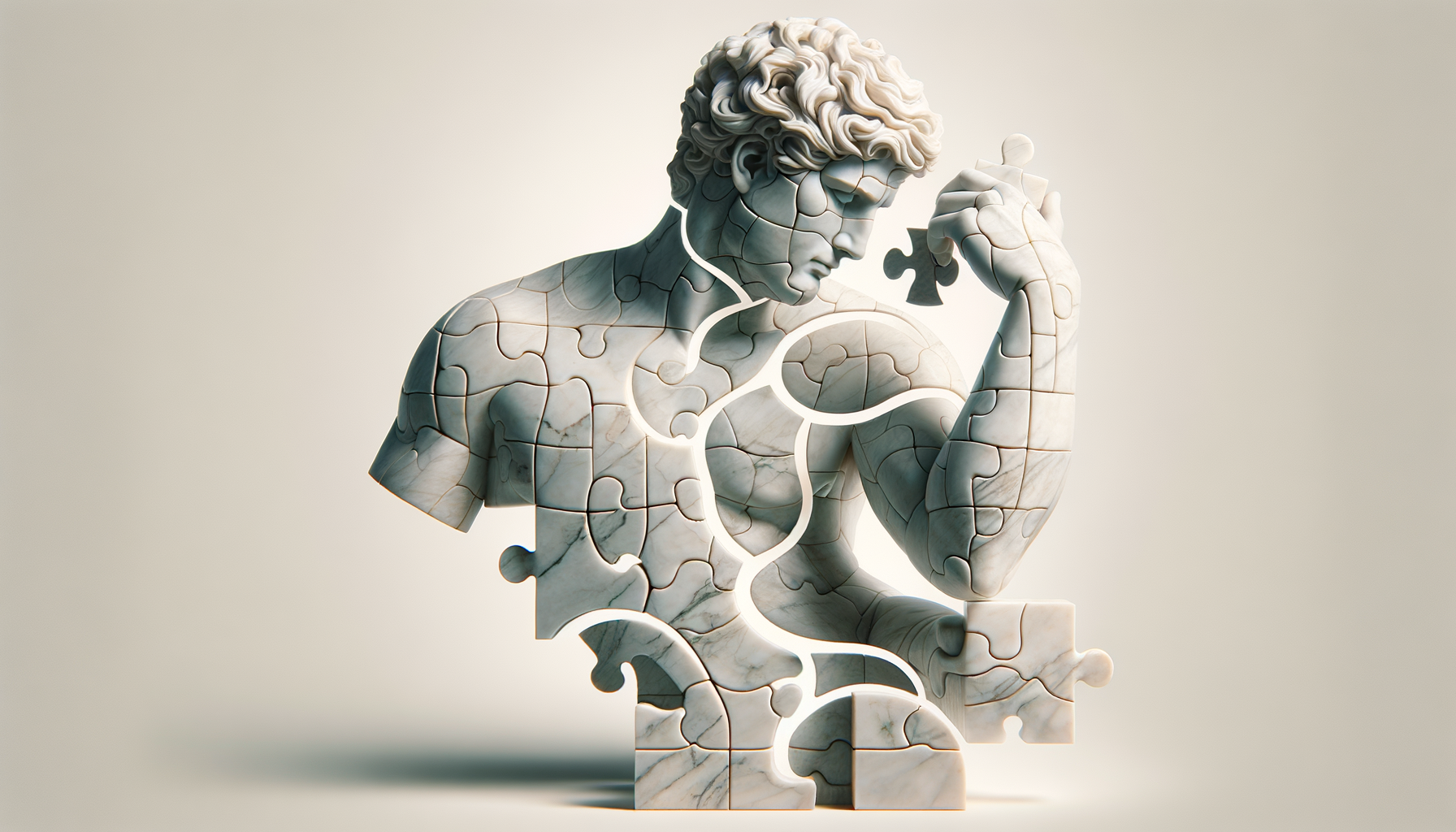If I’m being perfectly honest, learning to love myself felt more like assembling an Ikea bookshelf than a Disney princess discovering her magic—confusing instructions, random emotional meltdowns, and plenty of backtracking to figure out where I’d placed that one oddly-shaped peg. Self-acceptance wasn’t this shiny epiphany where suddenly I looked in the mirror and heard Lizzo singing, “I’m my own soulmate.” It was—ahem, is—an ongoing process filled with detours, awkward epiphanies, and moments so farcical I could probably sell them as a rom-com script.
But the messiness is worth it because arriving at a place of self-love has this weird, beautiful ripple effect. It makes dating, relationships, and even solo Friday nights with ramen and Netflix feel different—and honestly, better. If you’ve ever fumbled on this journey (haven’t we all?), I’m here to share what worked for me, what didn’t, and what might just help you give yourself the love you’ve always deserved. Let’s dig in.
The Mirror Isn’t the Enemy (But It’s Really Intimidating)
When I was younger, my relationship with mirrors could rival the most toxic reality show plotline. I grew up in a family where teasing was love, and I heard every joke about my “forever windblown” hair (thanks, Arizona’s desert winds) and my “antique” wool sweaters (a.k.a. thrift store finds). As much as those remarks were said with affection, they burrowed into me, becoming little voices pointing out flaws every time I faced reflective glass.
The problem was, I’d only look at myself to find the bad. No one thrives when their only reassurance comes from squinting into the proverbial funhouse mirror of their imperfections. So, I started a new practice: staring at my reflection every morning, but instead of diving into critiques, I’d focus on things I appreciated—even if they seemed tiny or silly.
At first, this felt incredibly awkward. Staring yourself down while muttering, “Your cheekbones kind of pop today,” is not peak confidence. But over time, it became a ritual. I’d greet myself, catch my unguarded expressions, and take in not just my appearance but how I was feeling. It wasn’t about “fixing” myself; it was about finally seeing myself. Turns out, the mirror isn’t scary—it just reflects the relationship you have with you.
Try This: - Every morning, say one kind thing to yourself in the mirror. Start small: “Your hair survived the night nicely,” or “Your eyes look calm today.” You don’t have to believe it at first; just get into the habit. - Shift your focus from critiquing individual features to seeing the bigger picture: a whole, imperfect, lovable person.
Would You Speak to Your Best Friend Like That?
Here’s an exercise that slapped me into realization faster than I could binge-watch “Broad City.” One semester in college, I went through a spiral of comparing myself to more polished, preppy New Englanders. I kept nitpicking everything—from how I dressed to how (I thought) I didn’t belong.
During one particularly overdramatic pity-party, my roommate snapped and said, “Tiana, if you talked to me the way you talk to yourself, we wouldn’t be friends anymore.”
Cue the guilt. She was right. If I’d criticized her half as harshly as I did myself, I’d probably be iced out of her group chat.
That’s when I started asking myself one crucial question every time I got into a spiral of self-doubt: Would I talk this way to my best friend? If the answer was no (and it usually was), then I stopped. I replaced my spin cycles of criticism with something gentler, like, “Okay, you’re having a tough day. What can you do to make yourself feel better?”
Try This: - When self-doubt creeps in, imagine saying your thoughts out loud—but to someone you love. If you’d never say those words to them, don’t say them to yourself. - Instead of tearing yourself down, speak to yourself with the same compassion you’d use for someone you truly care about.
Falling for Yourself, Flaws and All
Somewhere along the way, I stopped seeing myself as a project that needed to be perfected and started seeing myself as a story worth embracing. This shift felt seismic, partly because it flew in the face of every diet ad, self-improvement book, and Instagram filter screaming that I should optimize my life.
On my field research trips to the Dinétah (our Navajo homeland), I witnessed something that profoundly changed this perspective. Many traditional Diné weavers believe flaws in their textiles—the mismatched strands or “spirit lines”—are purposeful and sacred. They’re not mistakes; they’re reminders that humans aren’t meant to achieve sterile perfection because growth lives in our imperfections.
I began to ask myself what my “spirit lines” were—the quirks, scars, or mistakes that I’d previously tried to erase. Was it my blunt humor? The mole near my lip that I hated as a kid? My food-court-sized appetite for mac and cheese? These were things that made up the fabric of who I am—and more importantly, they made me human. Once I honored them (instead of shutting them away), I felt freer to appreciate the whole, messy masterpiece of myself.
Try This: - Make a list of your “flaws” and reframe them as endearing quirks or strengths. Can’t sit still? Maybe you’re energetic. Overly emotional? You’re deeply empathetic. - Remember: The pursuit of perfection is exhausting. Choose instead to be authentic.
Don’t Wait for Permission to Take Up Space
When I first moved to Portland, I spent nearly six months missing out on cool events—concerts, poetry readings, even a friend’s birthday party—because I didn’t know a single person there. “I don’t belong here,” became my mantra anytime I talked myself out of going out.
But one day, I stopped caring. It was a Friday night, and a Buffy Sainte-Marie tribute show was happening at a local bar. I didn’t know anyone who wanted to go, but I went anyway. Nervously. Clutching my drink like a toddler’s security blanket. By the end of the night, though, I’d made friends with an older couple sitting next to me, swapped Spotify playlists, and even joined them in an impromptu harmonized singalong.
Sometimes self-love looks like showing up—awkwardly, enthusiastically, and unapologetically—even when you feel like a cactus in a field of roses. The more you allow yourself the chance to take up space, the less you’ll care about whether you “deserve” it.
Try This: - Dare yourself to do something solo: go to the movies, a yoga class, or a community event. Aim to participate instead of disappearing into the background. - Treat each new experience as a way of signaling to yourself: “I respect and enjoy my own company.”
Loving Yourself Makes Love Possible
Here’s the little secret everyone sells as a cliché because it’s absolutely true: falling in love with yourself makes every other connection in your life richer. When you value yourself, you’re less likely to settle for lukewarm relationships or to twist yourself into emotional origami just to “fit” someone else’s expectations. You learn to appreciate shared love as a bonus, not a necessity.
For me, that shift showed up in small ways—daring to say “I need space” instead of bottling up resentment, asking questions without fearing I’d seem “too intense,” and laugh-crying during dates because I’m equal parts sentimental and mortifyingly clumsy (and that’s fine).
So, take your time. Seek out your spirit lines and celebrate your mirror moments. Self-love doesn’t have to be some grand epiphany—it’s a series of imperfect choices that eventually snowball into something steady and beautiful.
Go ahead. Fall for yourself. I promise you’ll make the best love story yet.




















